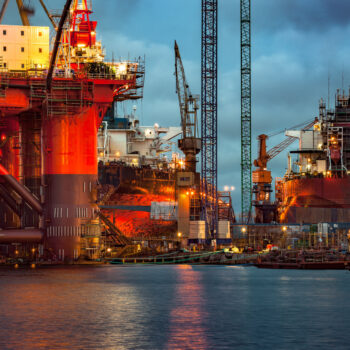As the eyes of the world turn once again to global leaders’ willingness to close the significant emissions and (climate) finance gap, European leaders are sitting comparatively pretty. But what does their participation in the Biden-convened Leaders Climate Summit mean for European leaders?
Here are four questions that Prime Minister Frederiksen, President Macron, Chancellor Merkel, Prime Minister Draghi, President Duda, Prime Minister Sánchez, President von der Leyen, and President Michel should be asking themselves as they prepare to take the virtual stage.
How are they planning to use the stage they’re given?
By agreeing to an “at least 55%” 2030 emissions reductions target (compared to 1990 levels) in December 2020, European leaders, alongside the UK pledging a 68% reduction, set the G7 bar for emissions reductions. With President Biden convening 40 world leaders on April 22nd and 23rd, all eyes are now on what other leaders in the G7 (US, Japan, Canada) and G20 (China, India, South Korea) will be bringing to this leaders’ level milestone on the road to Glasgow.
However, with eight European leaders (from Denmark, France, Germany, Italy, Poland, Spain and the European Council and Commission) taking the stage come Earth Day, they can’t turn up empty-handed. One easy candidate: the delivery and benefits of green recovery. All EU27 foreign ministers committed to keeping green recovery on the international agenda in 2021, and European leaders have a strong story to tell – of a 37% climate earmarking, and a commitment to “do no significant harm” in their recovery investments. Sharing the story behind how and why EU leaders will deliver this green recovery ambition and coordinate diplomatic engagement to support green recovery abroad can help shift the political calculus in G7 and G20 countries starting to reconsider the benefits of building back better in 2021.
All EU27 foreign ministers committed to keeping green recovery on the international agenda in 2021, and European leaders have a strong story to tell.
Joint EU leadership to address the glaring gaps on finance action is another prime candidate. Key opportunities for EU leadership include signalling intent to increase public international climate finance in the next period (2021-2025) or spotlighting some of their first steps towards phasing out international coal and broader fossil finance. Ahead of the Leaders Summit on Climate, six European Member States (including France, Denmark, Germany and Spain) plus the UK launched a new “Export Finance for Future” alliance. More details on this effort, alongside concrete timelines for phasing out international coal and broader fossil finance, might be the first step to showcasing continued leadership on the Earth Day stage.
Is this the springboard for transatlantic unity – not just in word but in action?
The narrative of transatlantic climate unity has been strong in the run-up to the summit, but the delivery of climate diplomacy has been dominated by bilateral US efforts. This summit will be the litmus test of what fruits John Kerry’s diplomatic efforts will bear – admittedly sowed on the fertile ground of years of coordinated diplomacy by European and Member State delegations. But even a best-case scenario is unlikely to see the entirety of the G20 commit to higher climate ambition at this stepping-stone on the road to Glasgow. For this to happen, the summit needs to become the springboard for deep transatlantic cooperation on climate in two senses:
- From words to action: a renewed commitment to coordinated EU-US-UK+ engagement in the capitals of major emitters through embassies as well as climate envoys.
- From asks to offers: not all G20 countries can significantly enhance ambition on their own. Beyond aligning EU-US-UK “asks” or “expectations” of G20 partners, is there a coordinated effort to deliver the big country “deals” or “offers” that mobilize the sums needed to realistically support a country like South Africa or Indonesia to implement ambitious climate goals? These significant sums of money would need multi-country, leaders’ level coordination to pull together. The reward of deeper cooperation could be significantly shifting the dial in accelerating the just and ambitious transition away from coal to a modern, resilient, and affordable energy system on a timeline that keeps the climate safe temperatures in reach.
What does the Leaders Summit on Climate tell us about what the Biden administration will not prioritize?
And will European leaders be willing to help fill the growing gap on delivering the solidarity agenda that is foundational to the success of COP26 and trust in the multilateral system?
What the Leaders Summit on Climate will clearly show: the EU (and UK) are no longer alone in driving climate leadership in the G7 and beyond.
What it is equally likely to show: Adaptation and public finance for climate will not be top of the US priority list. Instead, the US will focus on major economies and mitigation ambition.
The Biden administration cannot and will not pick up every aspect of climate leadership – too much needs to happen in 2021. But the adaptation and finance pillars of the Paris Agreement are falling off or to the bottom of the agenda too often. Navigating solidarity issues is quickly becoming make or break for COP26. North-South relations are already extremely strained, by everything from inadequate efforts to support COVID-19 response and recovery globally, to under-delivery against the 2009 promise by developed countries of $100bn annually in climate finance to developing countries. And governments like Brazil and China are actively positioning themselves as champions of developing world concerns, particularly on adaptation and finance, while continuing to under-deliver on their own emissions reductions. Unaddressed, any combination of these dynamics could make for a fraught and frustrated COP26.
Governments like Brazil and China are actively positioning themselves as champions of developing world concerns, particularly on adaptation and finance, while continuing to under-deliver on their own emissions reductions.
The EU and its Member States were key to bridge-building high ambition coalitions with vulnerable countries ahead of the UN climate negotiations that landed the Paris Agreement in 2015. It is a role that European leaders could once again fill today.
Where can European leaders revive a solidarity agenda and coalition coming out of the Leaders Summit on Climate?
- The German-UK co-hosted May Petersberg Climate Summit (Chancellor Merkel’s last!), – this is already set to pick up some of the issues around lack of access to climate finance raised at the UK’s March Climate and Development Ministerial. German Federal Election candidates could send strong signals on their climate commitment to both to their constituents and to vulnerable country partners by announcing concrete additional commitments to support green recovery abroad as well as at home and accelerating global climate action through financial support.
- The 18th May France-Africa summit – while not exclusively climate-focused, this summit bringing together several African and European climate leaders is set to focus on unlocking support for African countries affected by the COVID-19 economic crisis. Alongside issues around fiscal space and debt, it could also address the next step: support for broader “build back better” investments.
- The Italy-led 11th July G20 Venice Climate summit – which is set to bring finance and climate conversations together at the end of a summit-packed second quarter.




